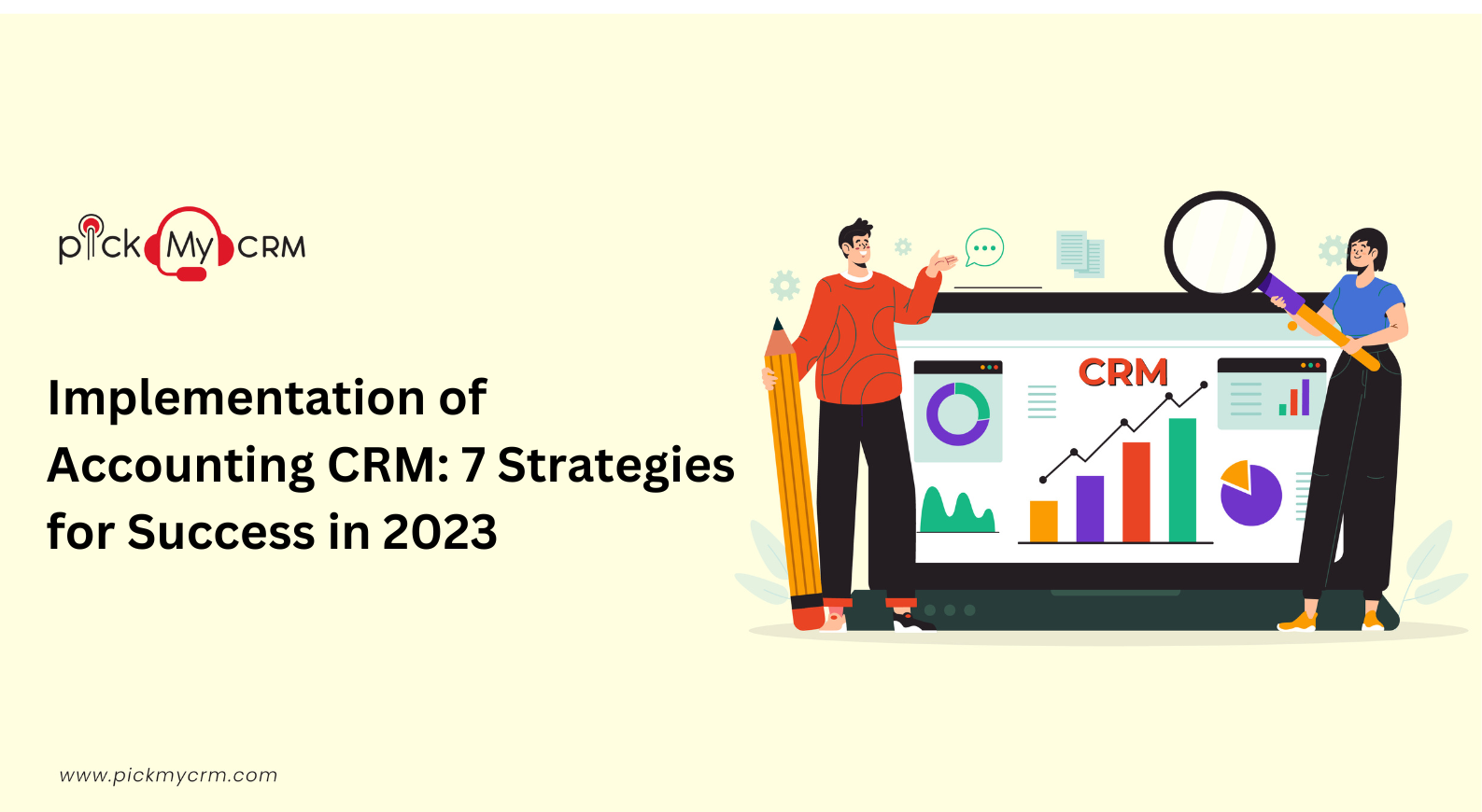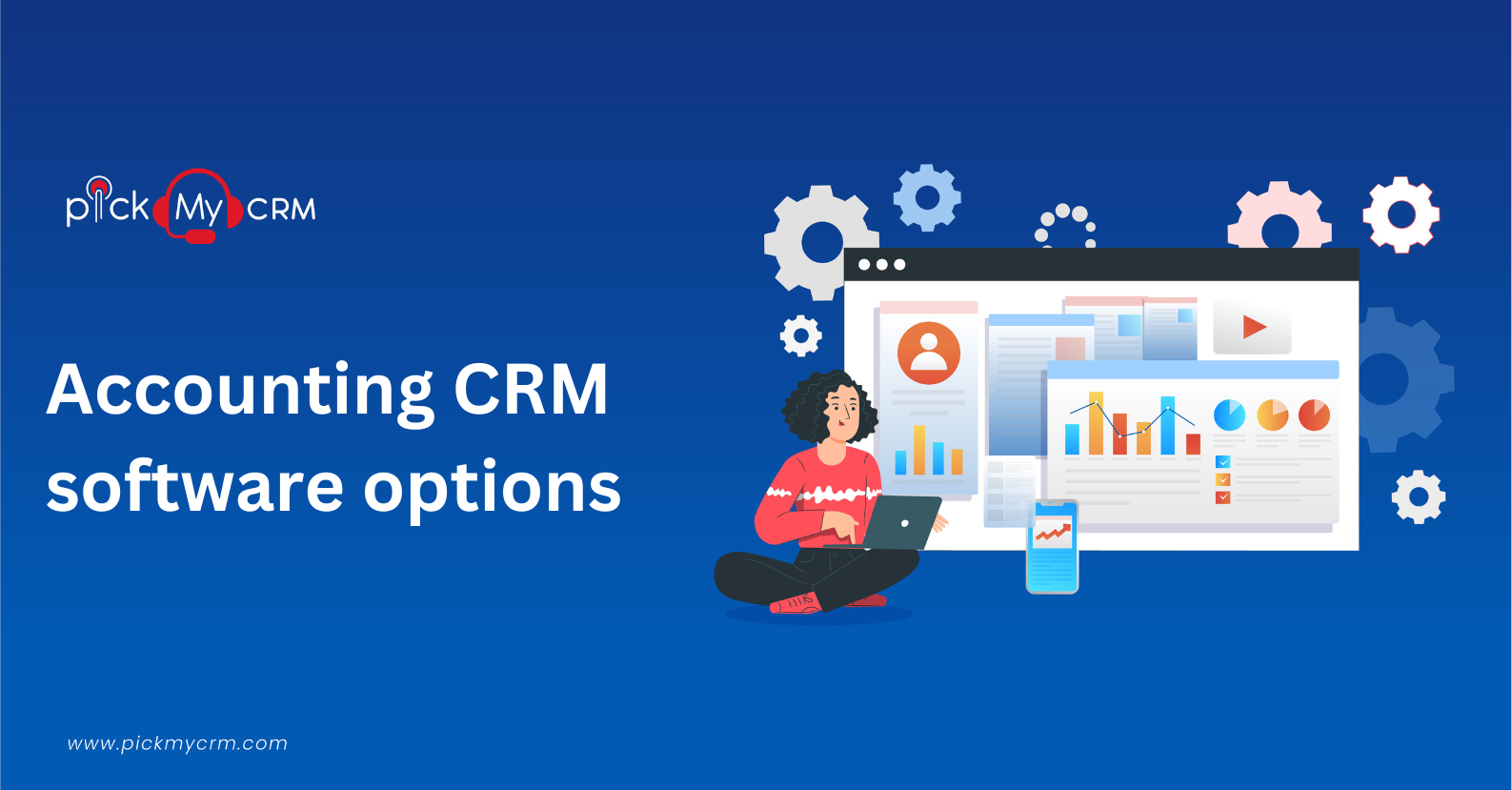Implementation of Accounting CRM: 7 Strategies for Success in 2023

The Pre-Implementation Phase
Before delving into the technicalities, the pre-implementation phase lays the groundwork for success. Key steps include:- Clear Objectives and Goals: Define your CRM's purpose– streamlining workflows, enhancing client communication, or improving data analysis. Establish specific goals to guide the integration process.
- Budgeting and Cost Analysis: Strike a balance between expenses and functionality. Assess financial resources for initial implementation and ongoing costs to ensure a sustainable investment.
- Selecting the Right CRM Solution: Consider factors like compatibility, scalability, user-friendliness, and integration capabilities. Thoroughly research and explore options aligning with your practice's needs.
- Data Migration and System Integration: Plan for a seamless transition by evaluating the CRM provider's data migration capabilities. Prevent data loss and workflow disruptions during the shift from older systems.
Team Preparation and Training Mastery
Preparing your team is as crucial as selecting the right CRM. Here's how:- Staff Training and Onboarding: Roll out a comprehensive training program covering the basics to advanced features. Tailor the training to different roles within your practice for a smooth transition.
- Assigning Roles and Responsibilities: Clearly define and assign specific tasks based on team members' strengths. This ensures clarity, reduces confusion, and enhances efficiency.
- Building a Dedicated Implementation Team: Form a team enthusiastic about the project to coordinate efforts, address challenges, and ensure a smooth transition. Regular communication is key.
- Aligning the Team with CRM Objectives: Communicate the CRM's objectives and benefits to boost team motivation and enthusiasm for the transformative journey.
Data Security and Compliance
Protecting sensitive financial data is crucial during Data Security and Compliance for the implementation of Accounting CRM:- Ensuring Data Privacy and Security: Implement encryption, access controls, and regular updates to safeguard financial data from unauthorized access.
- Compliance with Industry Regulations: Adhere to regulations such as GDPR or the Sarbanes-Oxley Act. Work closely with your CRM provider to meet these requirements.
- Data Backup and Disaster Recovery Plans: Establish robust plans to prevent data loss during unexpected events, ensuring data recovery procedures are in place.
- Secure Document Management: Ensure your CRM provides secure storage for financial documents, enhancing organization and reducing the risk of data loss.
Launch and Initial Adoption
The launch phase sets the tone for CRM implementation:- Planning a Smooth Transition: Develop a clear roadmap outlining the steps involved, ensuring everyone understands expectations from data migration to system activation.
- Client Onboarding and Communication: Inform clients about the integration, its benefits, and changes in their interactions with your practice.
- Setting Up Key Performance Indicators (KPIs): Establish measurable KPIs aligned with your objectives to gauge the success of CRM implementation.
- Monitoring Early Adoption: Pay close attention to the initial adoption phase, addressing challenges promptly to ensure a positive experience.
Ongoing Monitoring and Optimization in 2023
The journey doesn't end with implementation; continuous monitoring and optimization are key:- Regular System Performance Evaluation: Keep a close eye on CRM speed, reliability, and overall performance. Address bottlenecks promptly.
- Feedback Collection from the Team: Regularly seek feedback to uncover insights and make valuable system enhancements.
- Identifying Areas for Improvement: Stay informed about CRM technology updates and innovations. Identify areas for improvement based on evolving practice needs.
- Incorporating Updates and Enhancements: Regularly install updates from CRM providers to ensure your system is equipped with the latest improvements.
- Data Analysis and Reporting: Leverage CRM reporting and analytics to gain insights into client needs, preferences, and behaviors, enabling more proactive and personalized financial advice.
- Client Engagement Strategies: Explore how CRM can enhance client engagement through strategies like automated follow-ups and personalized communication.
- Staff Training and Skill Development: Ensure ongoing training for your team to stay updated on CRM best practices and technology advancements.
- Regularly Reviewing Security Measures: Periodically review and update CRM security measures to protect financial information from emerging threats.
- Budgeting for Ongoing Costs: Allocate the budget for maintenance, updates, and training to ensure the longevity of your CRM system.



